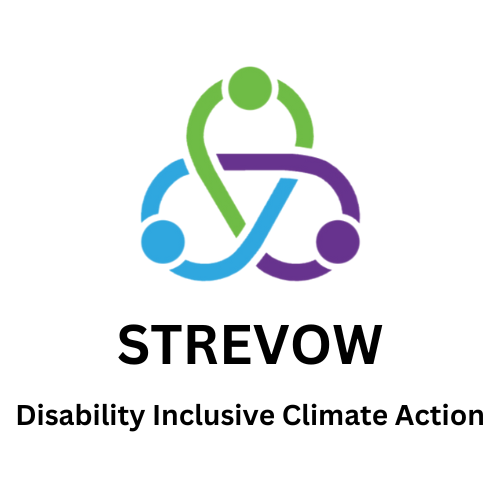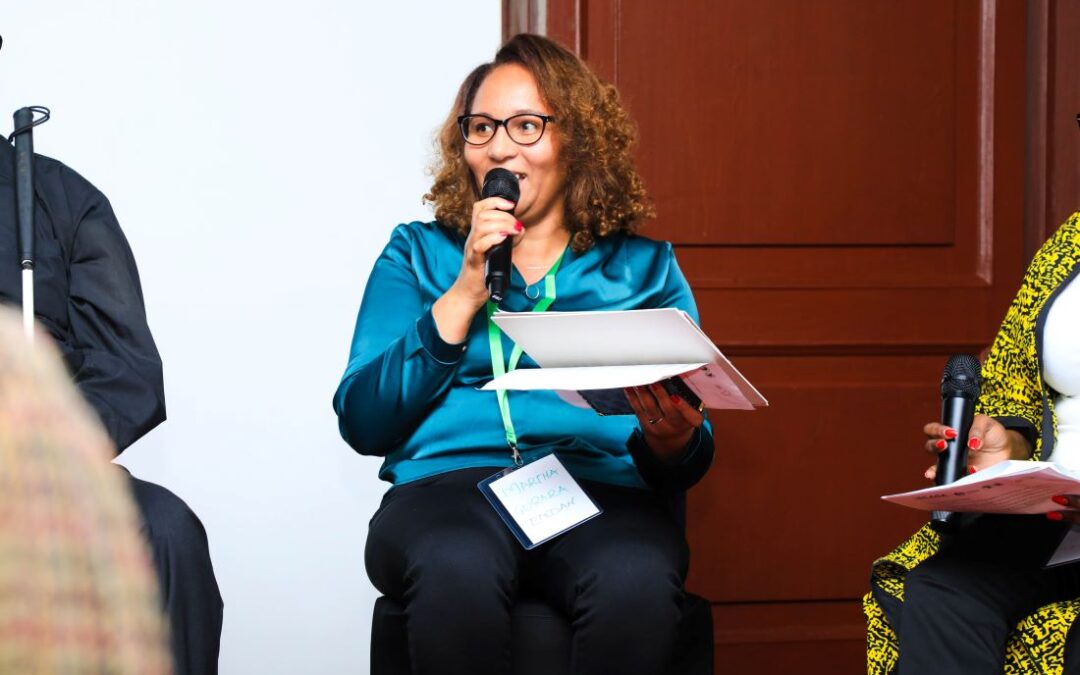Climate change has become one of the most urgent global challenges, yet one crucial aspect often remains overlooked: the inclusion of people with disabilities (PWDs). In Eastern Africa, PWDs are disproportionately impacted by climate-related events due to physical, social, and economic barriers. While their vulnerabilities are heightened, they also possess valuable skills and knowledge that can significantly contribute to building climate resilience. Advancing inclusive climate action in Eastern Africa by strengthening alliances for people with disabilities is essential to overcoming these challenges.
The STREVOW project has been holding a series of dialogues to engage experts, policymakers, and stakeholders in identifying sustainable solutions. One of these dialogues, held last year on “Advancing Inclusive Climate Action in Eastern Africa: Building Stronger Alliances for People with Disabilities,” explored various interventions to address these issues.
The Need for Inclusive Climate Action
Climate change impacts, such as extreme weather events, floods, and droughts, affect everyone, but for PWDs, the consequences are even more severe. Many face mobility challenges, limited access to critical information, and inadequate infrastructure, making it difficult to prepare for and recover from climate shocks. Additionally, societal stigma often limits their participation in climate-related activities, further excluding them from decision-making processes that affect their lives.
However, PWDs are not only vulnerable—they are also invaluable contributors to climate resilience efforts. Due to their lived experiences, people with disabilities often possess unique knowledge and adaptive practices developed from facing additional barriers in daily life. Their insights can inform alternative coping mechanisms and community resilience strategies essential for addressing climate change impacts.
Key Pillars for Advancing Inclusive Climate Action
The dialogue on advancing inclusive climate action in Eastern Africa focused on several critical areas: policy development, capacity-building, collaboration, and securing funding for disability-inclusive initiatives.
Inclusive Policy Development
The first step in ensuring that PWDs are not left behind in climate action is to create policies that address their needs. There is a pressing need to review and update national and regional climate policies to integrate disability inclusion. Governments should revise National Adaptation Plans (NAPs) and climate strategies to address the specific vulnerabilities of PWDs and provide solutions for their inclusion in climate resilience efforts.
Inclusive policy development goes beyond recognizing the needs of PWDs. It involves ensuring that their voices are included in the policy formulation process at local, national, and regional levels. Policymakers must engage with disability organizations and PWDs themselves to co-create policies that are not only relevant but effective in addressing the unique challenges faced by disabled communities.
Capacity Building and Training for Women with Disabilities (WWD)
Women with disabilities (WWD) represent one of the most marginalized groups in climate action. The dialogue emphasized the need for capacity-building programs designed specifically for WWD negotiators to enhance their participation in climate policy discussions. Tailored training modules will equip them with the necessary skills to engage in climate negotiations and advocate for disability-inclusive policies at national and international levels. These training programs should focus on building technical knowledge about climate change, advocacy strategies, and negotiation techniques. Collaborations with international disability organizations and climate advocacy groups will help build a robust network of trained individuals who can represent the interests of PWDs in climate negotiations.
Strengthening Alliances and Collaboration
A key takeaway from the dialogue was the need for stronger alliances between governments, civil society organizations, and disability groups. Working together, these stakeholders can advocate for the inclusion of PWDs in climate action plans, share resources, and collaborate on developing inclusive climate policies.
Regional cooperation can play a crucial role in fostering these alliances. Countries can share best practices and lessons learned from disability-inclusive climate initiatives, which can be adapted to different communities’ needs. Strengthening cross-border collaborations will amplify the voices of PWDs across the region and ensure their rights are prioritized in climate action strategies.
Securing Funding for Inclusive Climate Action
One major challenge in advancing disability-inclusive climate action is the lack of dedicated funding. Many climate initiatives overlook the need for disability-inclusive strategies, limiting resources allocated to PWDs. Governments, development partners, and funding bodies must prioritize securing funds for disability-inclusive climate initiatives.
This requires developing funding proposals that demonstrate the importance of integrating disability into climate action and the potential impact these initiatives can have on building resilience in vulnerable communities. By ensuring funding is directed toward inclusive strategies, PWDs will have the resources and support needed to actively participate in and benefit from climate resilience efforts.
Next Steps for Eastern African Countries
The dialogue identified several key next steps for implementing disability-inclusive climate action in Eastern Africa:
- Policy Revision: Governments should review existing climate policies to integrate disability inclusion and establish task forces to guide the development of disability-inclusive strategies.
- Training for WWD Negotiators: Specialized training programs for WWD negotiators should be developed to enhance their capacity to engage in climate negotiations and advocacy.
- Awareness Campaigns: National campaigns should be launched to highlight the impact of climate change on PWDs and advocate for their inclusion in climate action planning.
- Resource Mobilization: Efforts should be made to secure dedicated funding for disability-inclusive climate initiatives, ensuring resources are allocated to support the inclusion of PWDs in climate adaptation and resilience strategies.
Conclusion
Advancing inclusive climate action in Eastern Africa is not just a matter of equity—it is also a matter of effectiveness. By ensuring that PWDs are included in climate discussions, developing inclusive policies, and securing the necessary resources, Eastern African nations can create truly inclusive climate resilience strategies. Building stronger alliances for PWDs in climate action will lead to more equitable outcomes and greater community resilience, ensuring that no one is left behind in the fight against climate change.

